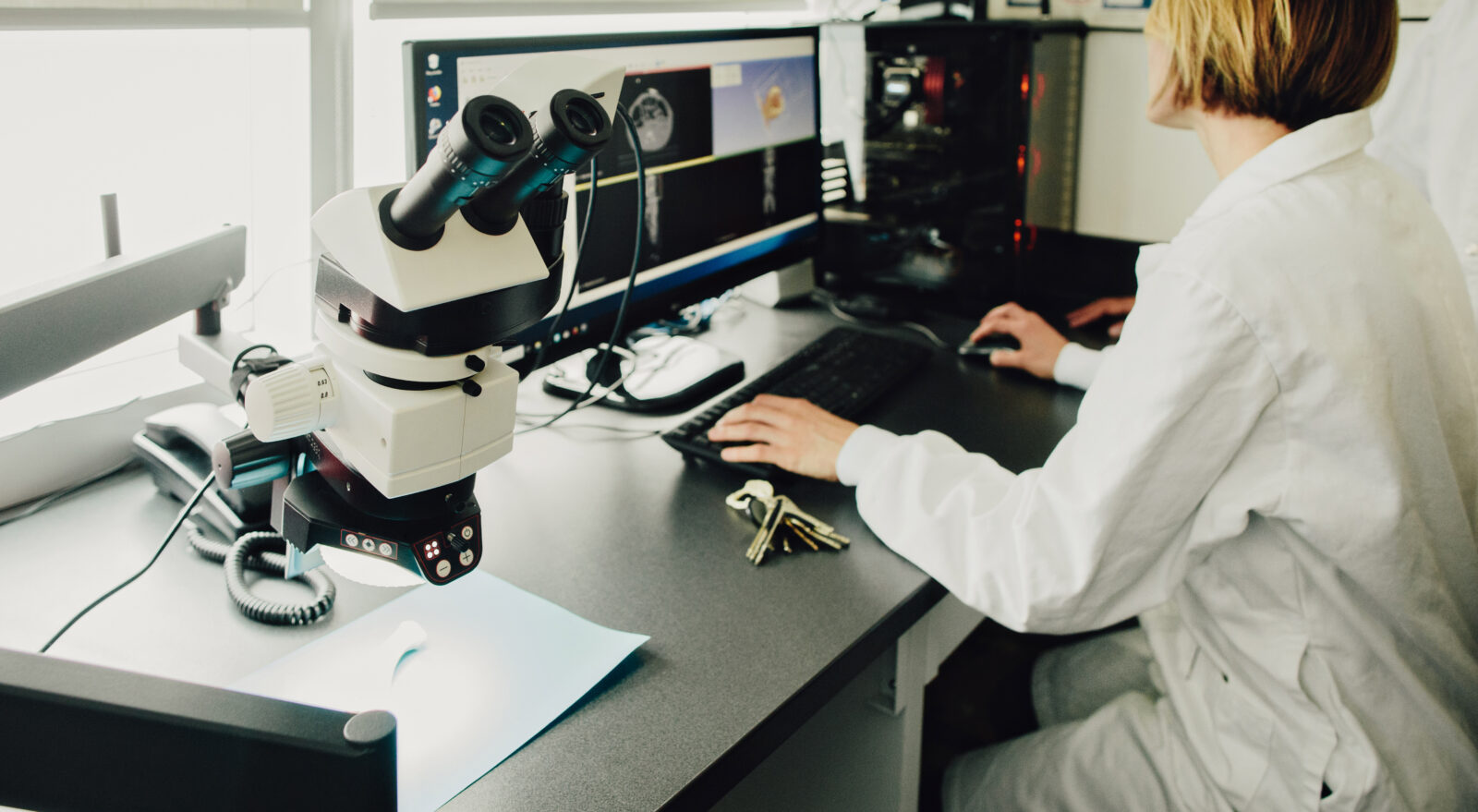As Chantal Sturk-Nadeau, executive director, business events at Destination Canada, puts it: “Business events play a crucial role in economic growth. When destinations focus on their intellectual assets in a particular industry or sector sphere, they can help local industries accelerate ahead of those in other communities to become leaders in their field. By aligning our strategies with Canada’s leading innovation industries, we are creating a thoughtful, community-based approach to business event attraction that unites tourism, industry, academia, government and economic development agencies, lifting up culture, art, community confidence and pride, and, ultimately, innovation.”
In Canada, 11 centres of excellence offer nationwide strength in the life sciences sector, which is led by four growing industries: pharmaceuticals, medical devices, biotechnology, and R&D. Compound annual growth of pharmaceutical sales has remained 4.5% since 2012, and over the past five years, employment in manufacturing in life sciences grew by 11.4%. Canada has also emerged as a global leader in digital radiography, in-vitro diagnostics, cardiovascular devices, dental implants and materials, and home healthcare products. The country is drawing global investors, since it’s the lowest-cost G7 country in biotechnology, product testing and clinical trials industries, and is the home of the third-largest life sciences cluster in North America, the Québec-Ontario Life Sciences Corridor. Also considered one of the largest bio-clusters in the world, the Corridor features more than 1,100 companies; 66,000 qualified workers; 490 undergraduate and graduate programs in biological and bio-medicine sciences; and receives annual public and private medical research investments of over $1 billion.
Revolutionizing regenerative medicine
Canada is leading the way in terms of research in regenerative medicine with over 160 researchers in the Greater Toronto region alone working in the sector. Research in this industry first started in 1961, when Toronto scientists published findings in the Radiation Research proving the existence of stem cells. Their work today is being carried on at the Centre for Commercialization of Regenerative Medicine and Toronto’s Princess Margaret Cancer Centre, the largest integrated cancer research, teaching and treatment centre in the country. The Ontario Institute for Regenerative Medicine (OIRM), meanwhile, has helped make Ontario a global leader in terms of development of stem cell-based product and therapies. “Despite COVID’s effect on the global economy last year, $20B USD was raised for regenerative medicine in 2020 – shattering all previous records. Global market predictions are projected to reach $77B USD by 2035,” says Sandra Donaldson, vice president and chief operating officer for the OIRM.

With a relatively modest investment from the provincial government ($25M over the course of five years), OIRM generated $174M in leveraged funding and invested in technologies that yielded an additional $332M, which helped finance eight, early-stage clinical trials and six companies that created 304 jobs for highly qualified personnel. One of the best success stories: BlueRock Therapeutics. OIRM invested $2.5M in the development of cell therapy to treat heart failure, which led to the company creation in 2016, which was bought out by Bayer in 2019. “We wanted to emphasize the translational stage of stem cell biology at the meeting, and chose the perfect venue—Toronto is a city that really embraces diversity and innovation,” says Robert Deans, PHD, chief innovation officer at BlueRock Therapeutics and member of the Toronto Organizing Committee for 2019 International Symposium of the International Society for Stem Cell Research (ISSCR).
Events like ISSCR’s 2019 International Symposium proved Toronto’s expertise in hosting events, and the advantage for delegates to meet in a city teeming with knowledge and dynamic startup culture. “It takes a community to generate this kind of success and is a testament to the strength of the ecosystem in Ontario,” Donaldson adds. “Ontario is creating a legacy in bringing regenerative medicine therapies into the clinic to treat patients with devastating diseases. These innovative therapies will not only improve the quality of life for these patients and their families but are now drawing large investments from the private sector.
In addition to institutes like OIRM, Toronto is also hotbed for innovation, with one of the best examples being startup Liberum, developed by University of Toronto’s Medicine by Design community, who wanted to create “an automated system that can be thought of as a ‘Nespresso machine for protein production’ that is going to provide on-demand and custom synthesis with the push of a button,” according to co-founder Keith Pardee, a Medicine by Design investigator and assistant professor at the Leslie Dan Faculty of Pharmacy. With these types of resources as associations’ disposals, Canada’s cities are showing a multitude of strengths in the Life Sciences sector that can encourage discussion and knowledge-sharing amongst delegates and industry experts.

Stem cell success
In Ottawa, meanwhile, national nonprofit Stem Cell Network is training the next generation in stem cell and regenerative medicine research by investing in $45 million over the next three years. Over in Québec City, the Laboratoire d’organogénèse expérimentale is performing organ reconstruction through tissue engineering with normal human cells, making it one of the first laboratories in the world to tackle such a feat. In terms of companies growing globally, Vancouver’s STEMCELL Technologies, is a prime example. Since launching in 1993 when founder and CEO Dr. Allen Eaves wanted to “find a way to meet the increasing demands for standardized, cost-effective cell culture media for growing hematopoietic stem cells,” STEMCELL has blossomed into a global biotechnology company that supports and collaborates with scientists on an international scale.
Thanks to the level of research and institutions specializing in regenerative medicine, the country has attracted conferences like the International Society for Stem Cell Research’s three-day International Symposia in 2019, held in Toronto, which brought 400 delegates, including some of the leading minds in stem cell science, to expand the society’s educational reach so it’s more accessible to scientists around the globe. Québec City also hosted the 13th Annual International CRISPR Congress in June 2019 at the Québec City Convention Centre, and in July 2022, Toronto will host the TERMIS (Tissue Engineering and Regenerative Medicine International Society) Americas Meeting. In addition to leadership in the Life Sciences space, 49 Canadian partners, including DMO’s, convention centres, and hotels, received MPI’s Healthcare Meeting Compliance Certificate, a stamp of approval proving they’re capable of hosting compliant medical meetings.
AI advancements
Canada’s Artificial Intelligence (AI) supercluster, Scale AI, has brought together private entities, research centres, academia and high-potential startups to fund and guide projects and initiatives in Canada so it remains a leader in the sector in terms of next-generation technologies. Scale AI has already invested more than $200M into over 150 AI industry-led projects, training initiatives and acceleration programmes.
As for the leaders in the country, Edmonton, Toronto and Montréal are making major strides in AI technologies that are helping to transform healthcare through machine learning, robotics and data analytics. For example, a University of Health Network AI scientist in Toronto has developed a platform to track the genetic structure of the COVID-19 virus, while AltaML, an Edmonton-based software company, is working with doctors at the Oliver Primary Care Network and pharmaceutical company Boehringer Ingelheim Canada Ltd. to help clinicians predict chronic illnesses, like diabetes and heart disease.
In June 2022, 38,000 delegates will attend Collision in Toronto, an event HuffPost refers to as “a global gathering of provocative ideas, brilliance, and investment dollars.” The event brings together tech leaders from a variety of industries to offer more than 100 hours of content and teambuilding opportunities through expert-led workshops and roundtables. In terms of medtech, topics will include healthtech investigating, investing in digital healthcare, and how tech makes healthcare cheaper.
In Montréal, Mila is also helping to develop AI tools to fight against the pandemic, as well as assist in other areas of life sciences like drug discovery and neuroscience. And thanks to research that initially started at the University of Alberta, Edmonton startup DrugBank has emerged as the world’s largest pharmaceutical knowledge database, serving as a one-stop-shop for data on more than 20,000 drugs, focusing particularly on those approved or in clinical trials to help new drugs get to market sooner. As Arden Tse, an investment manager with Accelerate Fund II, which has invested in DrugBank, said in an article on Edmonton Global: “In the multibillion-dollar drug research industry, the percentage of successful drugs being approved has gone down as costs for development have gone up. One of the levers that can speed up drug research is more effective access to data. DrugBank has built a scalable knowledge base that not only makes research faster and more economical today, but provides a smart data structure that can be fed into machine learning programs.”
It’s this type of startup culture and knowledge that is helping attract associations to Canada to gain expertise in life sciences, particularly in AI in healthcare and regenerative medicine, Canada is providing associations with access to leaders, its world-class research institutions, and R&D to help drive innovation and continue growing knowledge and collaboration across the sector on a global scale. Not only do visiting associations gain access to the cutting-edge research taking place in Canada’s centres of excellence, but they can also help be part of the innovation taking place that will lead to a better health solutions for societies across the globe.
